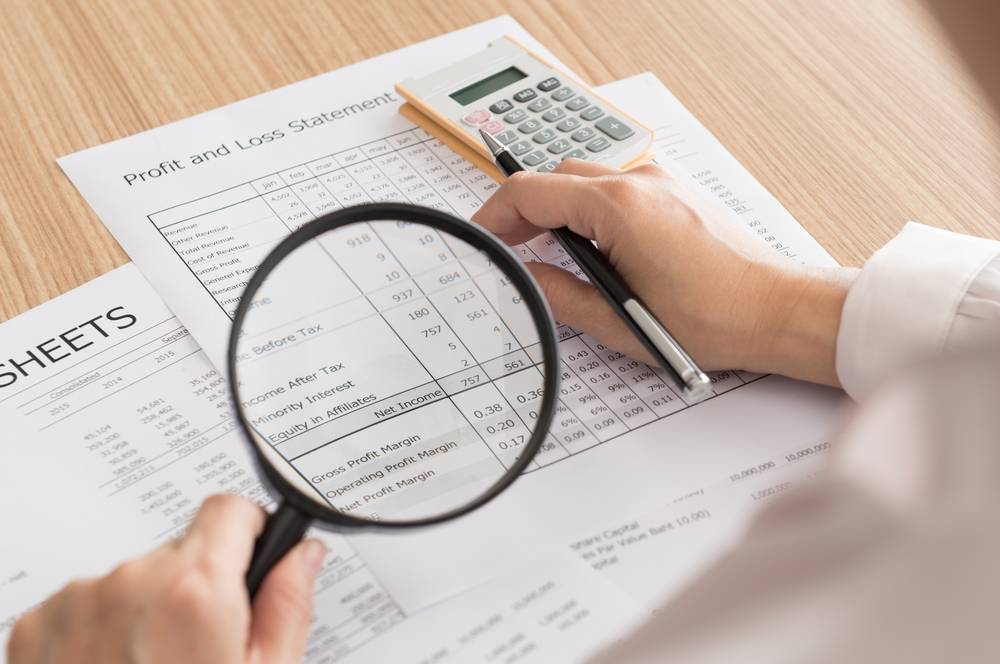Section
194I- TDS on Rent
A comprehensive guide to
understand TDS levied on rent paid.
Who is this guide for?
Persons who
are having rental income from land,building,plant &
Machinery ,furniture & fittings etc.
Topics Covered
- What is Section 194I?
- Reason for Introduction of TDS u/s 194I
- What is the meaning of ‘rent’ in reference to
Section 194I?
- What Payment is Covered u/s 194I?
- Who is liable to deduct TDS u/s 194I?
- What is the point of deduction of TDS?
- Rate of TDS
- No deduction or Dection at Lower Rate under Sec.197
- Under what circumstances TDS u/s 194I is not
deductible?
- What is the time limit on depositing TDS?
What is Section 194I ?
- The person (not being an Individual or
HUF) who is responsible for paying of rent is liable to deduct tax at
source.
- in case the aggregate of the
amount of rent credited or paid or likely to be credited or paid during
the financial year exceeds Rs. 1,80,000/-
- Also, individuals and/or HUFs who
are subject to tax audit are also under an obligation to deduct the tax at
source.
- The limit of Rs. 1,20,000/- was
enhanced to Rs. 1,80,000/- w.e.f. 1.7.2010
What is the Reason for
Introduction of TDS u/s 194I?
- The Finance Act, 1994 inserted the
Section 194I, regarding deduction of tax from rent
- The Government felt that an item
of income which should be covered under TDS Deduction should be the income
by way of rent
- In other countries as well, such
income is subject to deduction of income tax at source
What is the Meaning of ‘Rent’ in
reference to Section 194I ?
- ‘Rent’ means any payment, by
whatever name called, under any lease, sub-lease, tenancy or any other
agreement or arrangement for the use of (either separately or together)
any:
- land or
- Building (including factory
building) or
- Land appurtenant to a building
(including factory building) or
- Machinery or
- Plant or
- Equipment or
- Furniture or
- Fittings
- whether or not any or all of the
above are owned by the payee-Explanation (i) to Sec. 194-I. Sub-letting is
also covered.
- If the landlord collects security
or advance payment at the time of letting out a building to a tenant on
the condition that the deposit will be refunded at the time of vacating
the building, then such a receipt is not in the nature of income and,
therefore, no tax is to be deducted at source u/s 194I.
- However, advance rent (not in the
nature of refundable security deposit) paid is, subject to tax deduction.
Moreover, where any such rent is credited to ‘suspense account’ or to any
other account shall also be liable to deduct tax at source.
What Payment is Covered u/s
194I?
- Income from letting out of
factory building
- Where a factory building is let
out, the rent received generally is income from business in the hands of
the lessor or the owner of the factory. Only in a few cases it is income
from property in the lessor’s hands.
- But such payment also, which is
business income in the hands of the lessor and for which he will
necessarily be paying advance tax and finally be returning the rental
income, will be subject to tax deduction at source or TDS.
- This is an unnecessary burden on
both taxpayer and the tax administrator, because collection of tax will
take place as TDS from the lessor without much delay.
- Rent includes service charges
- Service charges payable to
business centres are covered under the definition of rent, as they cover
payments by whatever named called.
- TDS requirement where building
and furniture, etc., let out by separate persons
- In case where building is let
out by one person, and furniture, fixtures, etc., are let out by another
person, then the payee is required to deduct tax under Sec. 194I only
from the rent paid/credited for the hire of building.
- TDS requirement where rent not
payable on monthly basis
- Sec. 194-I does not mandate that
the tax deduction should be made on month-to-month basis.
- Therefore, if the crediting of
the rent is done on quarterly basis then deduction at source will have to
be made on the quarterly basis only. Where the rent is paid on yearly
basis deduction also will have to be made once a year on the basis of
actual payment or crediting.
- Charges regarding cold storage
facility
- In the case of cold storage
where milk, ice cream, vegetables, etc., are stored, the payment may be
styled as charges for use of plant and not for use of building. Cold
storage is a plant.
- Hall rent paid by an association
for use of it
- Since the association is
assessed as an association of persons and not as an individual or HUF,
the obligation of tax deduction will be there, provided payment for the
use of hall exceeds Rs. 1,80,000
- Payments to hotels for holding
seminars including lunch
- Where hotels do not charge for
use of premises but charge for catering/meal only, then provisions of
Sec. 194I would not apply. However, Sec.194C would apply for catering
part.
Who is Liable to Deduct TDS u/s
194I ?
- The person (not being an
Individual or HUF) who is responsible for paying any income to resident by
way of rent is liable to deduct tax at source.
- As per Budget 2017,individual /HUF
(not covered under Tax Audit) paying rent to a resident exceeding Rs
50,000 per month are also liable to deduct TDS @ 5%.This amendment will be
effective from 01.06.2017.
- In case the aggregate of the
amount of such income credited or paid or likely to be credited or paid
during the financial year by the aforesaid person to the account of, or to
payee exceeds Rs. 1,80,000/-
What is the Point of Deduction
of TDS?
- Tax is required to be deducted at
source at the time of credit of ‘income by way of rent’ to the account of
the payee or at the time of payment thereof in cash or by the issue of a
cheque or draft or by any other mode, whichever is earlier.
What is the Rate of TDS?
|
S. No
|
Nature of
Payment
|
Rates of tax
deduction
|
|
1
|
Rent of plant
and machinery
|
2%
|
|
2
|
Rent of land or building or furniture or
fitting
|
10%
(5%
if rent exceeding Rs 50,000 / month is paid by individual/HUF who are not
liable for tax audit)
|
have any question
No deduction or Deduction at
Lower Rate under Sec. 197
- On application by payee in Form
no. 13, if the Assessing Officer is satisfied that this total income
justifies no deduction of tax or deduction at lower rate, he may issue a
certificate in Form No. 15AA to that effect directly to the payer.
Under what circumstances TDS u/s
194I is not deductible?
- Amount payable/paid not exceeding
Rs. 1,80,000 during the financial year No tax from
the amount payable in respect of rent is deductible where the amount of
such rent credited or paid or likely to be credited or paid during the
financial year to the payee landlord or lessee does not exceed Rs.
1,80,000.
- Where tenant is individual or
Hindu Undivided Family Deduction is not required under
Sec. 194I if the amount is paid or payable by an individual or Hindu
Undivided Family. If :
- the individual/HUF is not to
carrying on any business/profession or
- individual/HUF not liable to tax
audit in preceding year
- Sharing or proceeds of film
exhibition between a film distributor and a film exhibitor owning a cinema
theatre
Representations have been received from various quarters regarding applicability of the provisions of Sec. 194-I of the Income Tax Act to the sharing of the proceeds of film exhibition between film distributor and film exhibitor owning a cinema theatre.The matter has been examined by the Board and the Board is of the view that the provisions of Sec.194-I would not be attracted to such payment because: the exhibitor does not let out the cinema hall to the distributor.Generally, the share of the exhibitor is on account of composite services; and The distributor does not take cinema building on lease or sub-lease or tenancy or under an agreement of similar nature. - Where the payee is the Government
at agency
Under the provisions of Sec. 196, no tax is required to be deducted at source from any sums payable to the government. The matter with regard to the statutory authorities and the local authorities referred to above, has been examined by the Board. Sec. 190. And it provides for deduction of income tax at source as one of the modes of collection of income tax with respect of an income. And this is notwithstanding that the regular assessment in respect of such an income is to be made in a later assessment year.The income of an authority constituted in India by or under any law enacted either for the purpose of dealing with and satisfying the need for housing accommodation or for the purpose of planning, development or improvement of cities, towns and villages, is exempt from income tax under Sec. 10(20A).Similarly, the income of a local authority which is chargeable under the head ‘Income from house property’ or ‘Income from other sources’, is exempt from Income-tax under Sec.10(20).There is no other condition specified in these two clauses of Sec.10 which is necessarily to be satisfied to avail of the income-tax exemption. There is no requirement to deduct income-tax at source on income by way of ‘rent’ if the payee is the governmental agency.In the case of the local authorities and the statutory authorities, there will be no requirement to deduct income-tax at source from income by way of rent if the person responsible for paying it is satisfied about his tax-exempt status under clause (20) or (20A) of Sec.10 on the basis of certificate to this effect given by the said authorities.
What is the time limit on
depositing TDS?
- Where the payment is made by or
on behalf of the Government- On the same day (without
using any challan form)
- Where the payment is made in any
other case than the Government- On or before 7 days from
end of month in which deduction is made, where tax is paid accompanied by
an Income tax challan
- If the amount is credited or
paid in the month of March- On or before April 30th
- In any other case- On or
before 7 days from the end of the month in which the deduction is made.
Need Help Filing your TDS
Return?
You can get in touch with us at info@retryglobal.com or
give call us on 8825738703,
for all TDS related queries.

